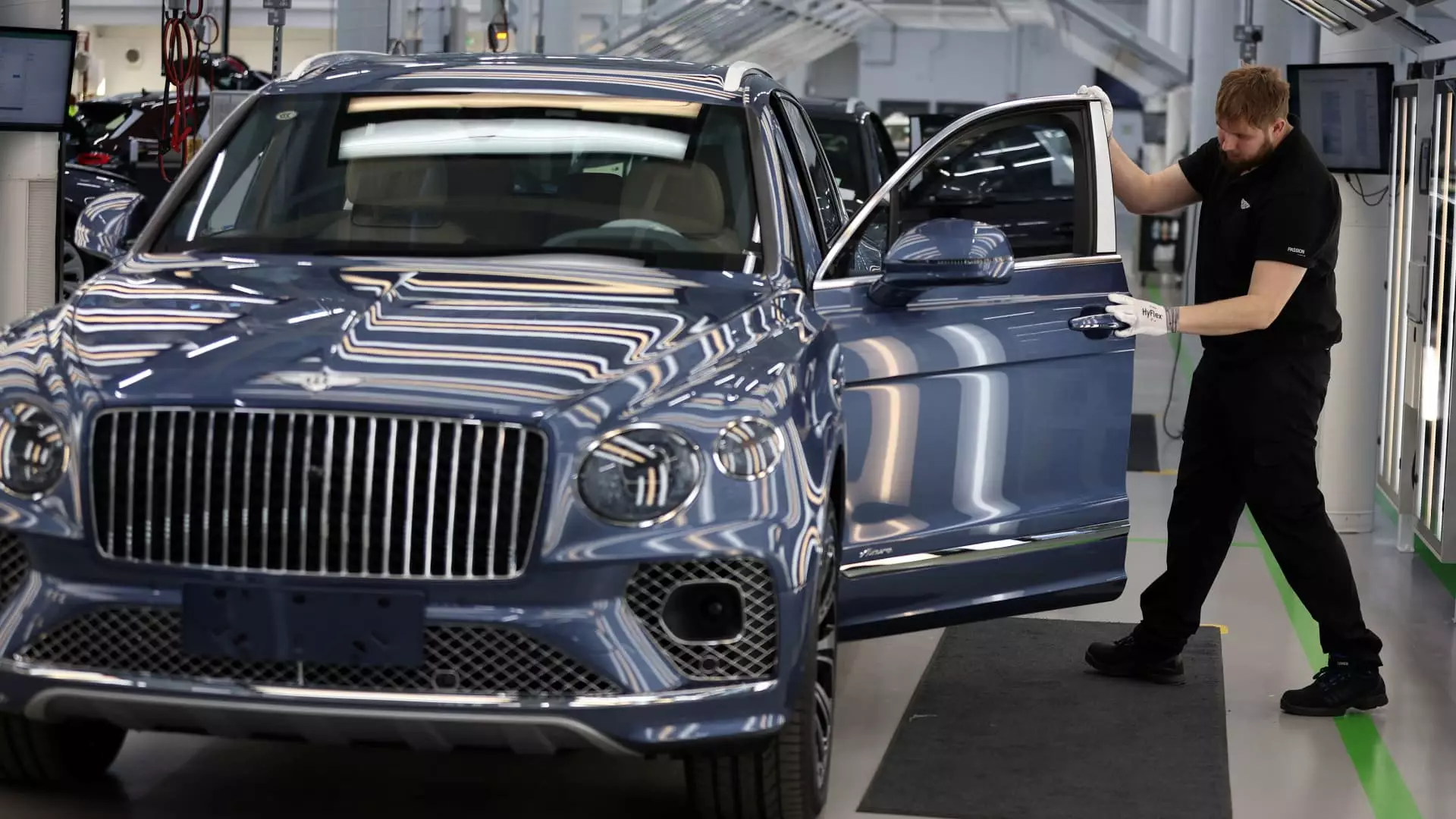Bentley Motors, the British luxury car manufacturer known for its opulent and high-performance vehicles, is adjusting its strategy regarding electric vehicle (EV) production. Originally aiming to transition exclusively to electric vehicles by the end of this decade, the company has now pushed this target back to 2035, citing fluctuating market demands and legislative pressures. Bentley’s decision highlights a broader challenge facing countless automakers as they strive to balance legacy practices with the modern demands of sustainability and innovation.
During a recent press event, Bentley’s Chairman and CEO, Frank-Steffen Walliser, candidly admitted that the current demand for EVs among existing Bentley customers is limited. This assertion calls attention to a key insight in the luxury automotive market: while the push for electrification is growing, an immediate consumer appetite for luxurious electric options remains underdeveloped. Walliser’s comments suggest that Bentley must adapt to the realities of its customer base while anticipating the needs of future clients.
This lack of demand is particularly pertinent when we consider the unique market position Bentley occupies. The brand is synonymous with large, powerful vehicles, traditionally equipped with robust 12- and 8-cylinder engines. Transitioning to an electrified lineup presents not only technological challenges but also the risk of alienating a clientele that values traditional performance and the emotional connections tied to the sound and feel of internal combustion engines.
Bentley’s revised strategy includes an annual introduction of new electric or plug-in hybrid vehicles until 2035. The first of these, a “Luxury Urban SUV,” is slated for launch in 2026, a significant delay compared to earlier timelines. The decision to extend this timeframe demonstrates an awareness of market realities and a commitment to meticulous development processes that align with the brand’s prestigious heritage.
Matthias Rabe, Bentley’s Head of Research and Development, has expressed the company’s intention to continue producing plug-in hybrid electric vehicles (PHEVs) as long as consumer demand exists. This approach emphasizes a transitional strategy where Bentley can still cater to traditional automotive preferences while gradually introducing hybrid technologies. In this light, the decision also reflects pragmatic foresight in upholding customer satisfaction in an era of otherwise aggressive electrification.
The evolving legislative landscape certainly drives Bentley’s electrification strategy, pushing the automaker toward compliance with stricter emissions regulations. As Walliser noted, the twin pressures of legislation and competition necessitate that Bentley remain agile in its approach to electrification. Traditionally, the brand thrived on the exclusivity of its powerful combustion engines; however, as environmental necessities loom larger, it must redefine itself.
Historical setbacks have also played a role in Bentley’s journey toward electrification. Recent comments made by former CEO Adrian Hallmark emphasized software-related challenges and difficulties in vehicle architecture that inhibited a timely shift to electric platforms. These developmental hurdles necessitate a careful, considered approach to new vehicle designs—one that balances performance with adherence to the evolving technical landscape.
Bentley Motors stands at a crossroads as it attempts to honor its storied legacy while strategically navigating the rising tide of electrification. By extending its target for an electric-only lineup, Bentley demonstrates an understanding that success in this new era of automotive design will not come from adherence to a rigid timeline, but rather from fidelity to quality and brand identity, even amidst changing consumer expectations.
The name change of the strategic initiative from “Beyond100” to “Beyond100+” serves not only as a promotional effort but also symbolizes a commitment to ongoing evolution. Bentley’s ability to adapt to the present while positioning itself for the future may well determine its success in maintaining luxury relevance in a world moving rapidly towards sustainability. As the gears of the automotive industry turn, Bentley is working to ensure it remains a vanguard of opulence, innovation, and environmental responsibility.


Leave a Reply